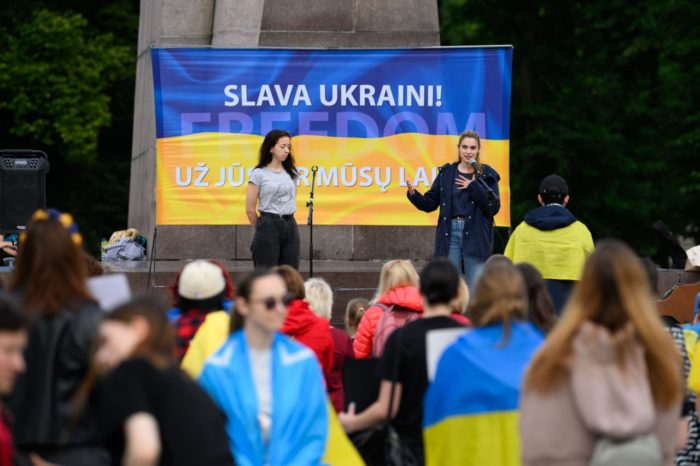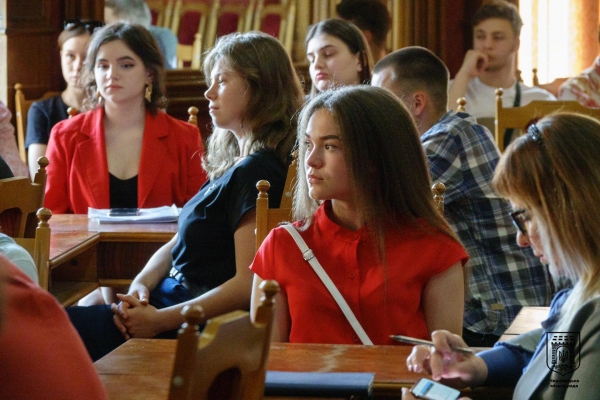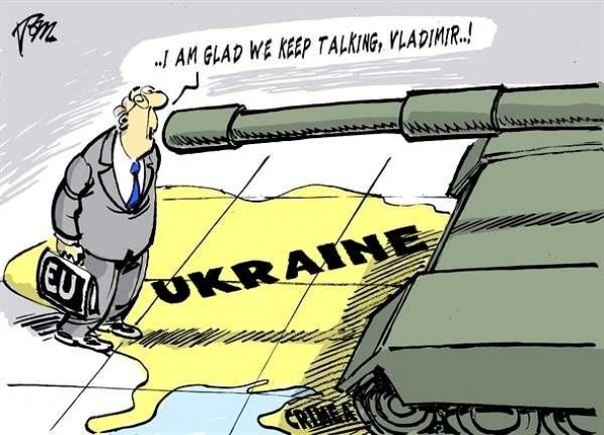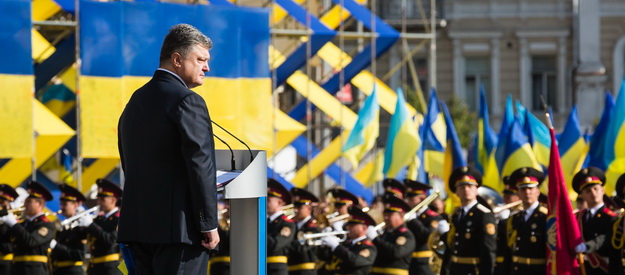First stereotype: Ukrainians are very poor
Some Europeans viewed Ukraine as extremely poor. Many Ukrainian refugees were surprised to learn that.
“They perceived us almost like we are cave people who do not know and have not seen anything,” Nataliya Benaicha who temporarily settled in Paris has said.
“Europeans were surprised that Ukrainians have bank cards, iPhones, laptops, that Ukrainians go to restaurants, that Ukrainians have higher education. They are very surprised that we have all the documents in the application [Diya app where many government services are available for Ukrainian citizens online,–ed.] that we can transfer funds in seconds,” Nataliya shares.
Tatiana Mousienko, who found shelter in Germany, echoed it, saying, “Germans thought that all refugees were poor orphans from the dungeon. They were surprised at our clothes, cars, and knowledge of different languages.”
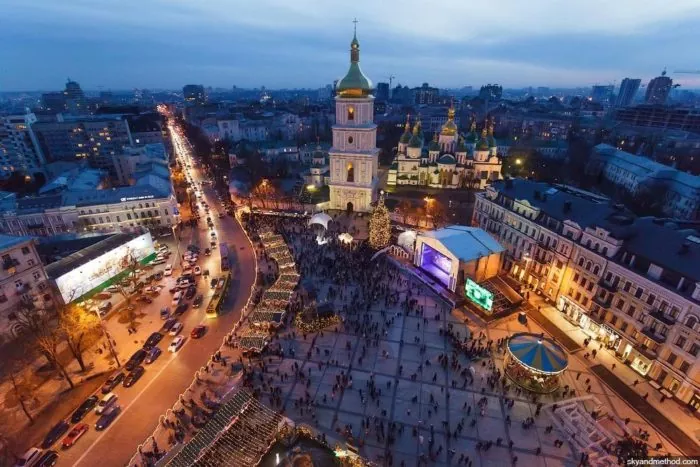
A few Europeans even asked Ukrainians if they have Coca-Cola or H&M in Ukraine, if they know computers well, what ventilators are or how microwaves work. They were surprised that Ukrainians had the same apps they do on their phones. Although like in any country, there are poor people in Ukraine, the belief that these essential goods are absent provoked surprise in Ukrainians. This stereotype might mislead because of a distorted interpretation of economic data about Ukraine.
In post-war Ukraine, Zelenskyy will face fate of Churchill – social scientist
Tatiana Tachi, with her family, temporarily lived with three French families at the beginning of their arrival after they left Kharkiv:
“Some [Europeans] consider Ukrainians to be uninformed, uncivilized… somehow, even a superior attitude. It was a little funny and annoying at the same time when they showed us the shopping center and asked, ‘have you seen this?’ I proudly showed them photos of the Nikolskyi shopping center (we are from Kharkiv), our Park, and streets decorated for the New Year. The French were somehow even offended. And when I showed the Diya app and told them how it works in our country and how the banking system works. I saw some disbelief or irritation on the face,” she says.
Many host families or strangers at work further compared Ukrainian refugees with others, surprisingly exclaiming, “wow, you are like us.”
The stereotype of extreme poverty in Ukraine was frequently associated with the belief that Ukraine’s state system is ineffective:
“Today, the coordinator of the organization for helping Ukrainians wrote to me that Ukraine does not have any similar social assistance. I said that for eight years, Ukraine supported displaced persons from the east of the country on its own. They didn’t even know. Many Ukrainians also gave their houses to people for a long time – a year or more,” Alla Stogniu, who moved to Paris because of the war, has said.
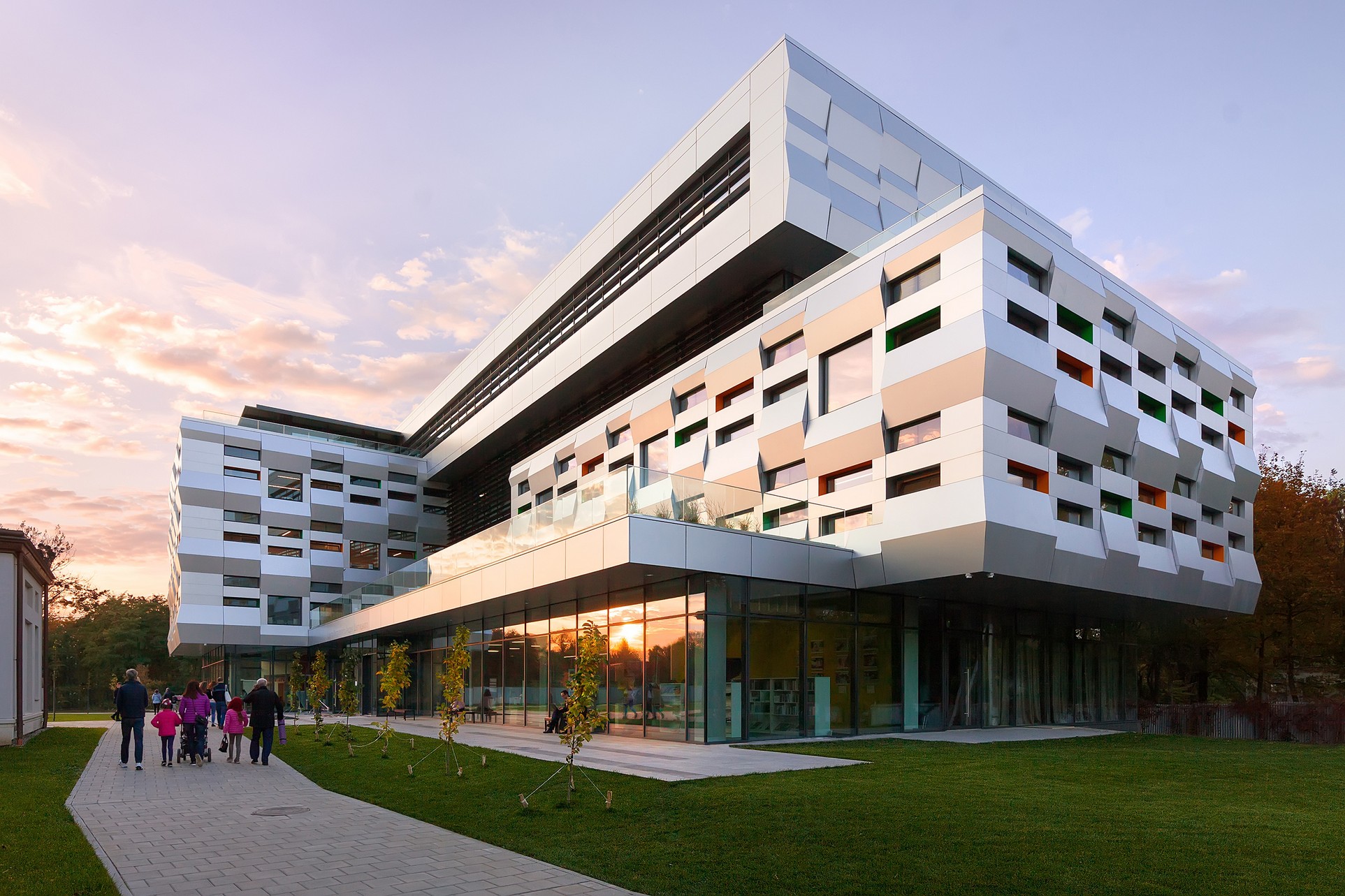
According to UNHCR data, while 4.7 million Ukrainians are registered as refugees in their host countries, another 3.1 million are not.
“I met Ukrainians who live entirely on their own resources, not just businessmen. And I’m referring to those who left during the war, left their businesses, or were forced to leave by the Russian occupiers. Those who intend to return,” says Kateryna Talitskykh.
This stereotype occasionally led to misconceptions regarding the looks of Ukrainians.
“French women were extremely annoyed that my daughter and I tried to take care of our appearances despite going through such a difficult time (we dyed each other’s hair and did manicures)… Somehow I even received a complaint about this. It was unpleasant,” Tetiana Tachi says.
Other refugees faced the opposite misconception regarding looks: that all Ukrainian women should be dressed up.
“My friends are convinced that all Ukrainian women have 5-cm red nails, tattoos, silicone boobs, 10-cm fake eyelashes, and pour a bottle of perfume on their heads in the morning. My friends interpreted all my objections as lies. My personal example did not change their opinion,” Viktoriya Shapovalova shares.
Although the Europeans frequently mentioned that Ukrainians are extremely poor, some Ukrainians encountered individuals who held different views.
Yuliya Novosad, who settled in France, shares that people in her social circle “heard that Ukrainians are highly intelligent, progressive, and powerful. We always knew that Ukrainians were like that, they say. I was surprised. At the beginning of the war, they were well aware of not only Ukraine’s location but also the country’s entire geography. They only inquired as to whether the language resembled Russian.”
“The French gave my sister Coca-Cola, explaining what it is, and wondered why we have Cola in Ukraine. And also, at work, they often tell me that now we understand why Putin wants to take Ukraine — because there are very talented and hardworking people there,” Natalia Zinko, temporarily living in Paris, says.
“They often compare us with other refugees, saying that Ukrainians integrate better, that they immediately look for work upon arrival, that it’s good that our men do not leave their families in Ukraine for a better life. But unfortunately, it often highlights existing stereotypes about refugees from the East and Africa and the racism in French society. Personally, I do not like such comparisons at the expense of another group of people,” says Mariya Shcherbinina-Grouchka, who is in France.
“They think we don’t know what sushi is,” says Yuliya Rohachova, who has been staying in Lithuania and Scotland. “They [in our host family] told us how to eat, turn on the microwave, and use household appliances. They showed us a blanket and how to cover ourselves with it. How to buy household chemicals and much more.”
Second stereotype: Ukrainian refugees were willing to leave Ukraine
Some Ukrainian refugees said that the most unpleasant stereotype was to hear that they came to other countries for a better life and not because of the war.
“The most disgusting and offensive stereotype is that refugee equals poor, stupid, neglected, without any self-respect, and generally without a sense of self-worth. We didn’t run away from poverty, we didn’t come to earn money because we didn’t have anything to buy bread at home, and we didn’t come for handouts but primarily to hide our children from the war. We are educated and proud,” says Olena Kramar.
Anna Kovaliova noticed similar sentiments in France: “there are French people who look down and think that in France we want to find a better life. I always say that it is better to be a tourist in [another] country.”
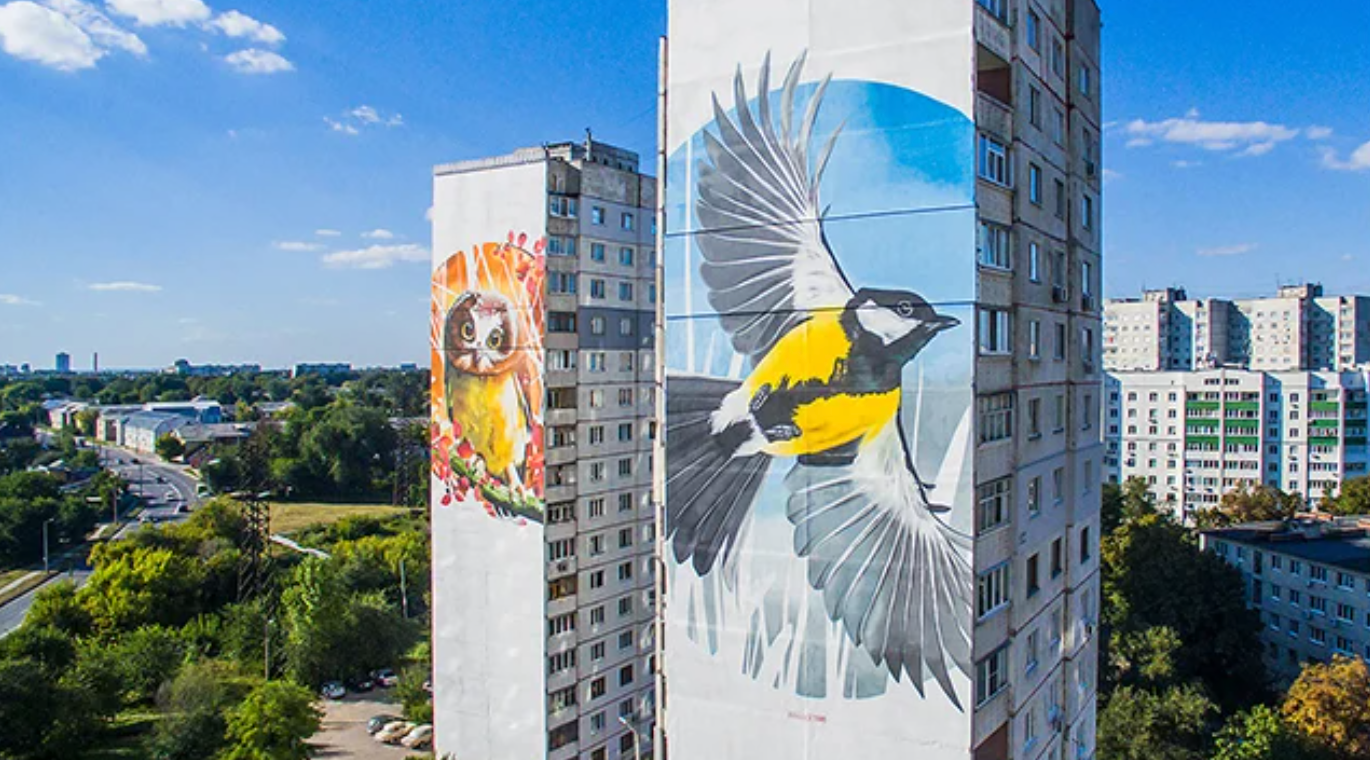
Svitlana, who also stayed in Poland, adds, “[local people] do not understand why we want to return or are already returning home.”
“When I said in May that I was returning home to Kyiv, because my home is there, you should have seen their eyes. [Locals] do not understand why we return, why we miss our land. By the way, some are even embarrassed, because they do not understand what they are doing wrong, and we want to return home. And thus they are offended in a childish way and in their eyes there is a question, what is wrong here? What is better for you there?” Svitlana adds.
Yuliya Rohachova stayed in two countries – first in Lithuania and next in Scotland.
“I felt more emotional support in Lithuania than in Scotland, because the [historical] stories are similar, and they know how evil the Russian army is. However, it depends primarily on the people themselves. And all of our pain will be understood only by those who have experienced something similar….More often than not, [Europeans] did not understand our emotional state and that we did not choose to move from our country, but it was a forced step. Although if you do not communicate for a long time and do not live together, then everyone is quite polite, friendly, and willing to help,” Yuliya says.
Some Ukrainian refugees attribute this misunderstanding to disinterest in the war and its causes and outcomes. Olena Inostranka, who works in a big company in Paris where three other Ukrainian women work too, says she heard from her French co-workers that “they are sick of Ukraine and its war.”

Yaroslava Kruk, who also lives in France, says in her surroundings, “no one mentions the war. And when I start a conversation about the war, they are silent. They are not interested in it.”
Yet Valentyna Vitrenko says that the French she met think the opposite: “they always turn to the topic of Ukraine with me. They ask what is better here, what is better here, how is it now.”
Olena says that once Poles understood that Ukraine is not a backwards backwaters but a country whose citizens were reluctant to flee, their attitudes to refugees changed dramatically
“Before the war, Poles believed God and humanity had forgotten about Ukraine. And when they realize that Ukraine is a country with educated citizens and that people are fleeing war, not poverty. And in many aspects, Ukraine is far ahead of other European countries; they are beginning to react differently. But today, a great deal depends on us, expatriate Ukrainians.”
Dealing with stereotypes is not the only experience; Ukrainian refugees must manage in other European countries. They also undergo a process of self-discovery within their communities. Many respondents added that they also had plenty of positive experiences. Ukrainians are incredibly grateful for the help of European countries.
“I can say everything good about Scotland. The attitude is good, and sometimes people have sincere tears in their eyes. They try to help with words, deeds, and warm hugs. No one owes us anything, so I am very grateful. [And as for the stereotypes] probably, for the time being, most of them are seeing Ukrainians for the first time,” says Halyna Savchuk.
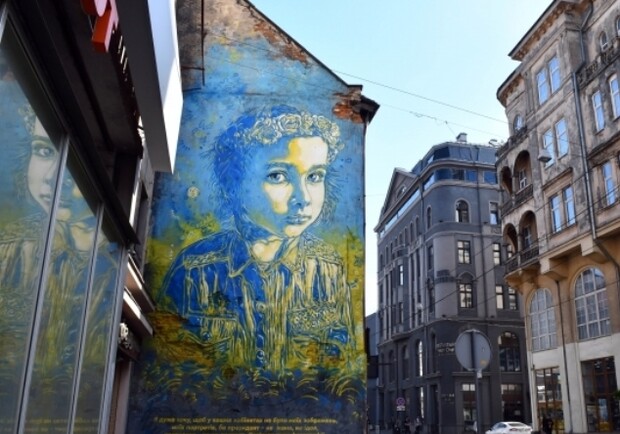
Other Ukrainians also shared that people they encountered were amazed by Ukraine’s resistance.
“[Norwegians] think that Ukrainians are super-people, not humans but superhumans,” says Inha Martynenko.
“I work in Nice directly with French clients, so I have many conversations every day. Everyone is delighted with our will and the resistance of our people,” says Nataliya Yurchenko.
“Now everyone tells me that Ukrainians are the bravest people. They often compare us with other refugees, saying that Ukrainians integrate better, that they immediately look for work upon arrival, that our men do not leave their families in Ukraine in search of a better life,” says Mariya Shcherbinina-Grouchka.
Third stereotype: Ukrainians all held low-wage jobs
Alisa moved to Switzerland in the summer of 2022 because her close relative required treatment. It had become impossible in a Kyiv hospital during the initial months of the full-scale war. In Kyiv, Alisa worked as a manager for a large Ukrainian company in Kyiv. She attempted to find employment in Switzerland. However, it proved challenging to find a job. Despite having the qualifications for a higher-paying job, local employers dismissed her candidature. They frequently advised her to accept a low-paying position.
“The only suggestion I’ve heard was to apply for a job as a cleaner or to wash dishes . I said that I didn’t even know how to do it properly, and they [host Swiss family] answered that I should start from this job and develop further. But I don’t get it. How is it possible to develop from a cleaner to a business manager, the job I had in Ukraine,” Alisa told us.
Yuliya Rohachova had the same experience in Scotland. “[For an employer] it was not important what you want to do. Here the only opportunity is to either work in the cleaning or hospitality sectors This is my not very pleasant experience.”
Other Ukrainians who found jobs said that employers offered them lower salaries.
“Many believe Ukrainians are ready to work hard for little money. Everyone knows that we can work and we do it well. We are appreciated for our work. However, they don’t rush to pay decent salaries . What a Norwegian would never do, Ukrainians do for a minimal fee,” Tetiana Ponich says about her experience in Norway.
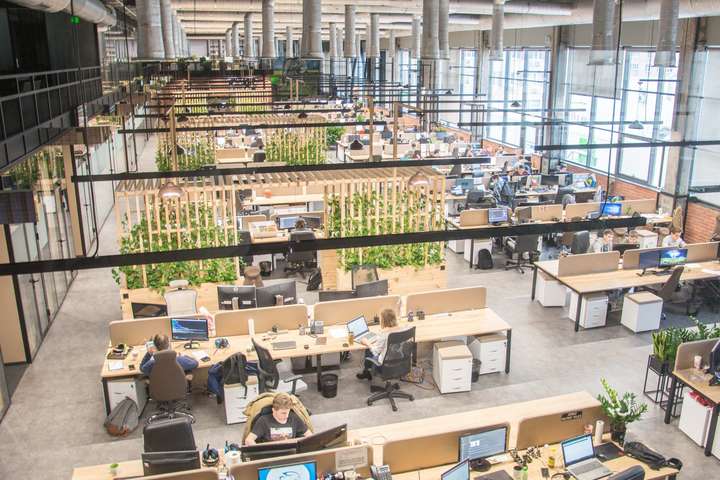
Aliona Bondarenko has also mentioned that Poles view Ukrainian workers as hardworking. Anna Kozak’s French employer also believed that Ukrainians are the most diligent people.
Alisa Alieksieyevna said that “the French are shocked that we work on weekends. It is a surprise for them.”
Viktoriya Babenko shared she knows workplaces in Poland that only invited Ukrainians to work. Still, employers simultaneously often valued the hardworking Ukrainians but also viewed it as an opportunity to pay lower salaries.
“[Employers believe] Ukrainians can be underpaid or given the minimum wage regardless of their experience and education. And my favorite cherry: ‘prices rose because of Ukrainians.’ Not the Russians, not because we were attacked and we are now without our homes, but because of the Ukrainians. And there are a lot of Russians and Belarusians here in Europe. But they have already been attributed to Ukrainians. It’s a shame. You often don’t want to talk to someone one more time.”
Yet, some Ukrainians notice that the perception of workers from Ukraine is changing.
Yuliya Vedmedenko, who stayed in Italy, says that “Although before that, in my opinion, Italians had an image of Ukrainians who only work as cleaners and caretakers, now their opinion about us is changing.”
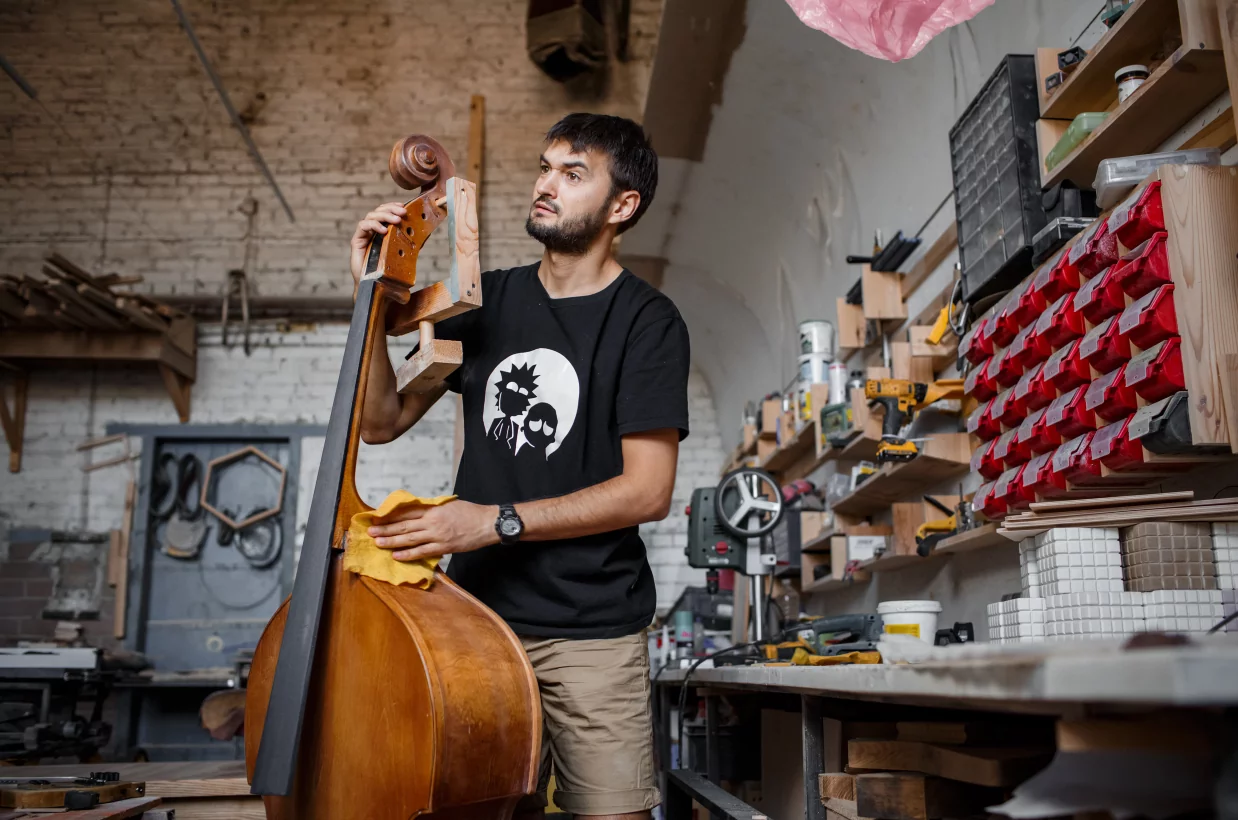
In general, many of our respondents have said they found jobs fast.
“In Europe, there is a stereotypical perception of refugees as people who cannot read and write and don’t know how to wash themselves. And here our people came who found jobs in the first two months and rented flats quickly. For Europeans, it was a shock because they think that a refugee is a person who cannot be independent for at least a year,” says Mariya Kutniakova, who relocated to Lithuania from Mariupol.
Ukrainian students begin working earlier because they graduate earlier (the typical age for young people to enter university is 17.) Alisa, who stayed in Switzerland, observed that the Swiss still perceived some young adults as children. Whereas in Ukraine, it is common to begin a career and support oneself in one’s early 20s.
The Europeans often linked the stereotype about Ukrainians’ aptitude for low-paid jobs to another following stereotype about Ukrainians’ level of education.
“Many Poles think that people in Ukraine do not have higher education. And even when a person shows them their diplomas, they say, ‘well, but it would be better if you went to work as a salesperson, cleaner, or on an excavator.’ But many Poles have changed their opinion about Ukrainians,” Kseniya Omelchuk says.
Fourth stereotype: few Ukrainians have higher education and are not intelligent
In reality, the number of university graduates in Ukraine is relatively high compared to other European countries. However, when asked if they had at least primary education, some Ukrainians found themselves in the following predicament.
“Locals think that we are uneducated and are ashamed when I say that almost all Ukrainians have a university degree, and you rarely meet a person without an education at all,” says Nadiya Danylova, who is in the UK.
In Scotland, Halyna Nebozhyna has changed several jobs and says that she was initially perceived “as stupid.” “They view us with suspicion,” she added.
For some Ukrainians, this perception was a traumatic experience:
“Today in the employment center in Spain, I was asked: did I have any education? Maybe I finished school, at least primary school. I was silent for a minute, then apologized, thanked, got up, and left. On the way, I remembered how my late father brought his unnecessary suits from home, and then all the local homeless people walked around in professor suits, and realized who I was: a professor in a homeless suit.”
More extended communication, though, often helped to change this perception.
“The French are sincerely surprised by multilingualism. Most of Ukrainians have a higher education, and they are surprised by the speed of learning new skills. Sometimes they don’t understand our creativity, e.g., they are afraid to add an ingredient to a dish using a recipe. It is good that Ukrainian women are at least no longer equated with representatives of the oldest profession. The French are a little nervous about our meal schedule, they don’t understand our emotionality, but most of the people I talked to are kind to us.” Olena Inostranka said.
Oresta Sparyniak added that “the knowledge, culinary skills, songs, and customs of Ukrainians,” astounded the French.
“In general, everyone who dealt with our refugees in March-May was surprised at the level of education and upbringing. They said in surprise: ‘You are the same as us’,” Iryna Melnychuk added.
Europeans have a high opinion of Ukrainian children’s knowledge. Nonetheless, they remain skeptical of Ukrainian schools.
Ukrainian women have also shared receiving a good assessment from schoolteachers about knowledge of Ukrainian children:
“I can say about the situation in Germany, France, and Norway: our schoolchildren, even though they have been on quarantines for two years, have much more knowledge at an earlier age. E.g., a girl from the second grade of a Ukrainian school solves tasks for the 4th grade of a German school. Foreign teachers are impressed by the knowledge of our children,” Svitlana says.
Angela Gaidei from the Ukrainian diaspora in France, who has lived there for 15 years, said she “was pleased when heard that [Ukrainian] children are smart and that they understand the school program very quickly.”
Nevertheless, the Europeans regarded Ukrainian schooling, currently accessible online for children who have left the country, as low quality.
“They think our schools, which are available online, are not serious and only Scottish education is good,” Yuliya Rohachova says.
Fifth stereotype: Ukraine as a “newly formed country” similar to Russia
“There is a stereotype that statehood appeared in Ukraine only after the collapse of the Soviet Union,” says Mariya Kutniakova, who moved to Lithuania from Mariupol.
“Many people ask about the history and say, ‘but you in your history have never had statehood.’ And I reply, and what about the Cossack state and the oldest constitution in the world? After the First World War, we, too had several years of statehood. It is constantly necessary to explain that we did not want to be part of the Russian Empire or the Soviet Union and that our struggle has been going on for centuries. But there is still this stereotype that Ukraine is a post-Soviet state and a province of Russia.”
Can you stop the fall of the Cossack state? Play this Ukrainian history game and find out
Mariya adds that some Europeans assumed that because she is from Ukraine’s east, she should have loved Russians and communicated in Russian.
“For example, we [our family] are from Mariupol, and when we speak Ukrainian or express our position, they wonder why we don’t like Russians. Probably, Russian propaganda is also present here, and somewhere this idea has crept in that there is so-called ‘Western Ukraine,’ where all allegedly love Bandera and are ultra-right, and ‘Eastern Ukraine,’ where everyone allegedly speaks Russian and loves Russians,” Mariya adds.
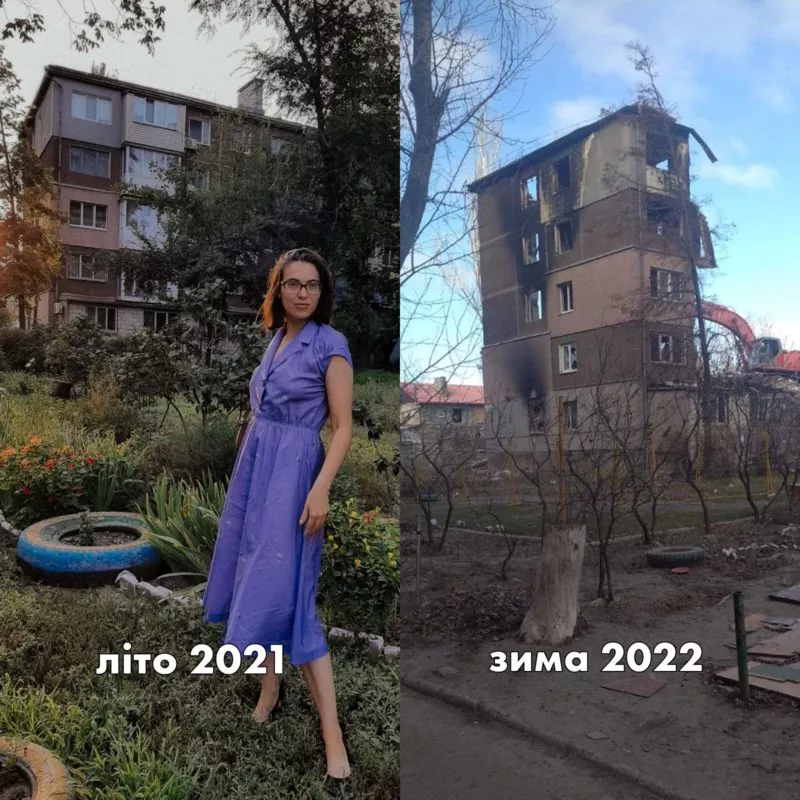
Several Ukrainians who moved to France and Norway had also noticed this stereotype of Ukraine being a “Russian province” and Ukrainians and Russians who allegedly were “brotherly nations.”
“They think that everything that was in the Soviet Union, everything is Russia. And now it turns out that this is a separate country, that Ukrainians are not Russian, that we have a different history, language, and culture,” says a woman who moved to France.
Hanna Ukrayinska adds that some French people think that Ukrainians and Russians are similar culturally.
“Almost everyone who has not previously met someone from Ukraine is sure that Ukrainians and Russians are brothers, almost relatives – they drink a lot of alcohol, especially young people, they are very poor and a very wild country,” she says.
Ukrainian Ksana Nilsen, who has been living in Norway for years, says that she had “long ago and successfully debunked this stereotype from the circle of acquaintances,” but also mentions that many believe that “the Russians and we are brotherly nations and make a conclusion that we are as lazy as the Russians, that we lie, drink and make noise a lot, break the rules, and so on.”
Many Ukrainian refugees attribute these attitudes to Europeans’ lack of knowledge about Ukraine. Anna Arfieyeva claims that her French circle knew nothing about Ukraine. It included the country’s geographic location, culture, food, and holidays. Thus, for example, some Europeans assumed Ukraine’s climate was much colder than it is in Europe. They also wondered why Ukrainians claimed to be cold.
“I’m 100% sure [some Europeans] think we came from Antarctica,” Valentina Kniazeva quips.
Anna Kovaliova says that she tried hard to explain Ukraine to other people:
“Before the full-scale war, [French people in my circle] did not know where Ukraine was on the map. It was a discovery for them that Ukraine is a big country, that we have our own unique culture, and there is a long history of conflict between Russia and Ukraine. They did not know that Anna Yaroslavna, wife of the French king, was the daughter of the Prince of Kyiv. They were amazed we are familiar with French literature and that Ukraine has beautiful architecture, and beautiful nature.
Good bye, USSR: Ukrainians take true ownership of their condos
“Now they know that Ukrainians are not Russians, and French people are now interested in everything related to Ukraine. I tell them about the artificial famine of Holodomor and deportation. And they also noted that we have very beautiful songs. Ukraine is new for them,” she shares.
Some Ukrainian refugees also mention that they were shocked to hear that all Ukrainians speak Russian.
“Surprisingly, many Poles think that all Ukrainians speak Russian,” Oksana Dubyk says.
“Some [French people] even wonder that Russian and Ukrainian are different languages,” Olha Artiushchenko adds.
Related:
- I’m done believing we’re the stupid ones, Ukrainian soldier tells Jonathan Franzen
- Lviv Garrison Church chaplains help soldiers find God amid war. And a pair of good boots
- Ukrainian theology professor turned sniper tells how to hunt for Russian invaders
- I am a researcher, not a military man. But there is war…
- “Dearest daughter, it’s total Hell. Death is everywhere” – Ukrainian father on the frontline
- Russian occupiers launch war on Ukrainian history, burning books and destroying archives
- The Russian invasion of Ukraine is an assault on the very concept of freedom
- From retiree to millionaire: 7 stories of heroism during the war in…

